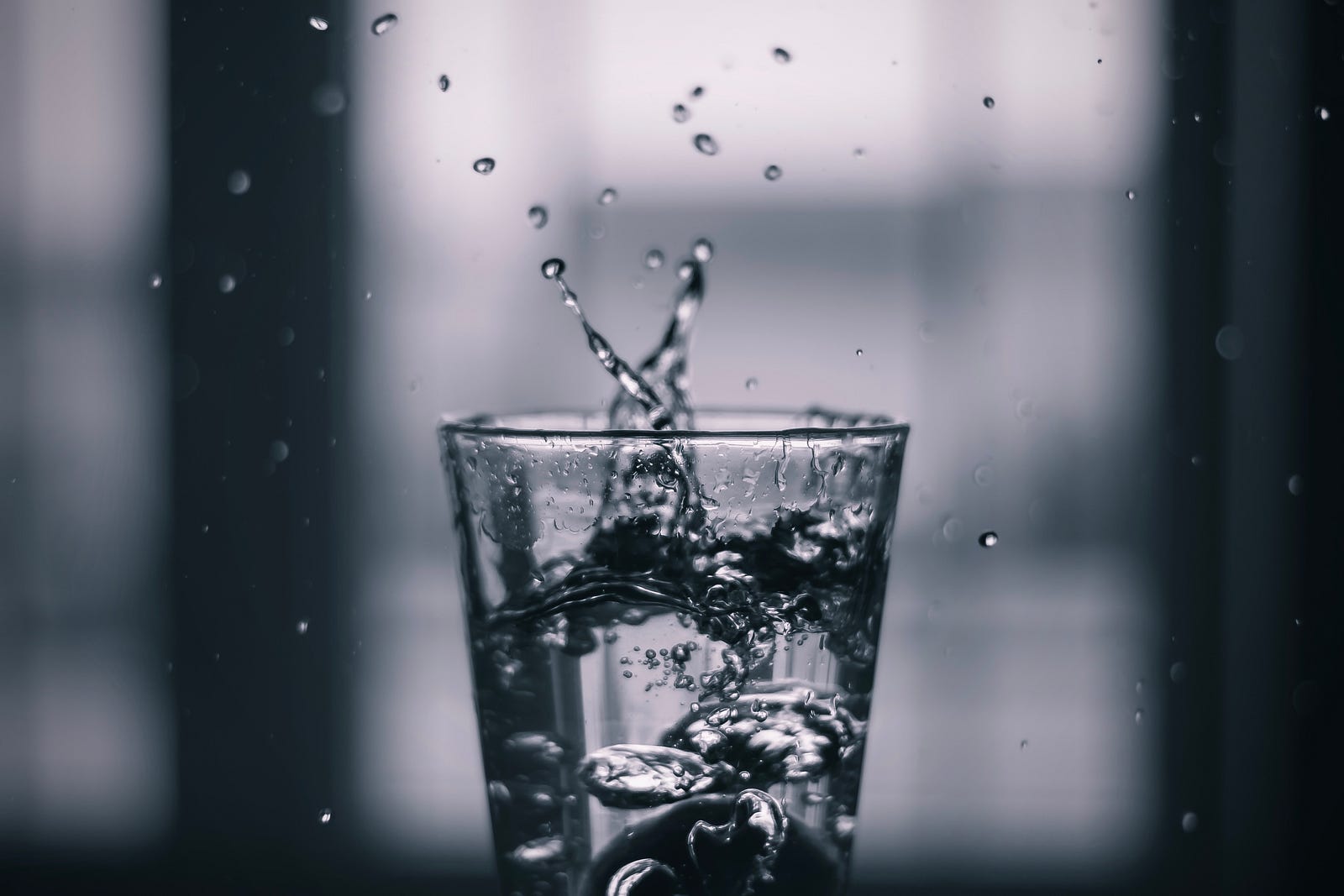DRINKING SUFFICIENT WATER IS ASSOCIATED with a significantly lower risk of developing chronic diseases, a lower risk of being biologically older than your chronological age, and a decreased probability of premature death. Blood sodium levels are related to health. Might hydration be linked to health, too?
I often write about the positive health benefits of regular physical activity. A balanced diet is a second key element to health. New evidence suggests that we should add good hydration to our definition of healthy lifestyle practices.
Today we explore a U.S. National Institutes of Health study on hydration, recently published in eBioMedicine.
“High and fine literature is wine, and mine is only water; but everybody likes water.”
― Mark Twain
Good hydration is important for health
Given historical findings in mice, the authors believed optimal hydration might slow the aging process. They noted that lifelong water restriction increased the serum sodium of mice by five millimoles per liter and shortened their lifespan by six months (about 15 human years). If we drink lower quantities of fluids, we see a rise in sodium levels.
The researchers offer that “learning what preventive measures can slow down the aging process is a major challenge of preventive medicine.” The context? We have an age-dependent chronic disease epidemic emerging as the world’s population ages rapidly.

Scientists analyzed 30 years of health information from over 11,000 adults in the Atherosclerosis Risk in Communities study or ARIC. They began data collection when subjects were in their 40s and 50s, and the mean age at final analysis was 76.
Here are the results:
Those with serum sodium levels at the higher end of the normal range — 135 to 146 milliequivalents per liter (mEq/L) — had worse health outcomes than those at the lower end.
Participants with sodium levels above 142 mEq/L had a slightly higher risk (up to 1.15-fold) of being biologically older than their chronological age compared with those in the 137 to 142 mEq/l range).
The researchers calculated biological age using biomarkers that measure the performance of different organ systems and processes, including cardiovascular, lung, kidney, metabolic, immune, and inflammatory biomarkers.
Faster-aging and chronic disease risk
Those with higher faster-aging risk also had an over 1.6 higher risk for developing chronic diseases, including the following:
- Heart failure
- Stroke
- Atrial fibrillation
- Peripheral artery disease
- Diabetes
- Dementia
- Chronic lung disease
Those with levels higher than 144 had a 1.5-times higher risk of being biologically older and a 1.2-times risk of dying early. zSubjects with levels between 138 and 140 had the lowest risk of chronic disease.
On the other hand, those with low sodium levels also had a higher risk of early death and faster aging. Previous studies have noted this association, likely attributable to diseases causing electrolyte issues, such as sodium.
The study lacked information about how much water the subjects consumed.
Speaking with CNN Health, Harvard epidemiologist Dr. Howard Sesso offers his take: “This study adds observational evidence that reinforces the potential long-term benefits of improved hydration on reductions in long-term health outcomes, including mortality.”
Hydration and health — My take
Unfortunately, studies such as this National Health Institutes one do not establish a causal relationship between sodium levels and health outcomes. We need additional studies.
Still, the findings could help clinicians identify individuals at risk. For example, noting serum sodium of 142 or higher might prompt an evaluation of the person’s fluid intake.
To reiterate, this National Institutes of Health study on hydration does not prove that drinking more water will prevent chronic disease or help us to live longer. On the other hand, one needs relatively high levels of dehydration (such as you might experience during an extreme heat wave) to see negative long-term health consequences.
Of course, certain medicines (such as diuretics or “water pills”) for blood pressure can affect a person’s blood-sodium level. In addition, some neurologic (and other) conditions can lead to higher average blood-sodium levels.
Hydration upsides
While dehydration is relatively uncommon in developed countries, staying hydrated has upsides. For example, hydration may help if you have joint pain. Hydration helps us to ward off kidney stones. For some, sufficient fluid intake can help with constipation.
According to several studies cited by the current study authors, approximately half the people worldwide don’t meet daily total water intake recommendations.
You might want to reconsider swapping out your water for sugar-sweetened beverages. Changing to sugary beverages may increase your chances of suffering from urinary tract infections, kidney injury, and kidney stones.
How much should most of us drink? You may have heard the recommendation to consume eight glasses of water daily, but that suggestion is not evidence-based. Normal drinking should allow most of us to dodge dehydration.
Drink 8 Glasses of Water a Day: Fact or Fiction?
Thirst drives my water consumption, and I feel best when I have had about six cups daily. My challenge is to amp this up with high-water fruits and vegetables. 2023 will bring more watermelon, cucumbers, and celery.
“Water, water, everywhere,
And all the boards did shrink;
Water, water, everywhere,
Nor any drop to drink.”
― Samuel Taylor Coleridge, The Rime of the Ancient Mariner
The information I provided in this blog is for educational purposes only and does not substitute for professional medical advice. Please consult a medical professional or healthcare provider if you seek medical advice, diagnoses, or treatment. I am not liable for risks or issues associated with using or acting upon the information in this blog.
Thank you for joining me in this look at hydration and health.




